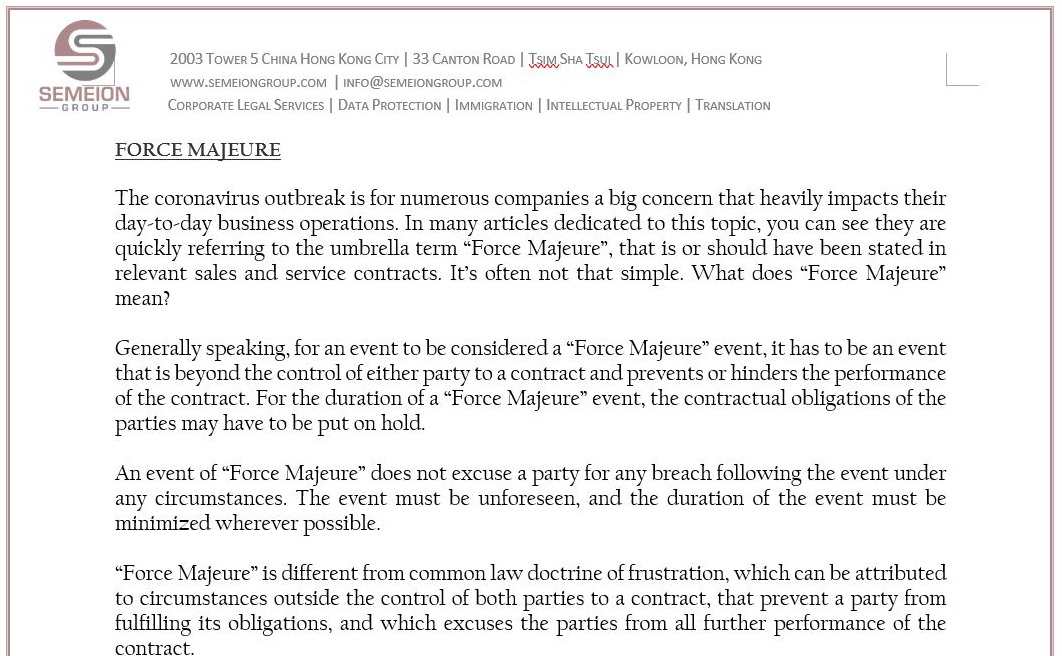
By: Semeion
Is a Pandemic Force Majeure?
The unprecedented coronavirus outbreak is for numerous companies a big concern that heavily impacts their day-to-day business operations. In many articles dedicated to this topic, you can see they are quickly referring to the umbrella term “Force Majeure”, that is or should have been stated in relevant sales and service contracts. It’s often not that simple. What does “Force Majeure” mean?
Generally speaking, for an event to be considered a “Force Majeure” event, it has to be an event that is beyond the control of either party to a contract and prevents or hinders the performance of the contract. For the duration of a “Force Majeure” event, the contractual obligations of the parties may have to be put on hold.
An event of “Force Majeure” does not excuse a party for any breach following the event under any circumstances. The event must be unforeseen, and the duration of the event must be minimized wherever possible.
“Force Majeure” is different from common law doctrine of frustration, which can be attributed to circumstances outside the control of both parties to a contract, that prevents a party from fulfilling its obligations, and which excuses the parties from all further performance of the contract.
In some jurisdictions, e.g. under Hong Kong Law, the treatment of “Force Majeure” depends on what is agreed in the contract and cannot be implied. Even where a contract includes a “Force Majeure” clause, before relying on it, the contractual parties may wish to consider alternative ways to perform the contractual obligations and mitigate the effects of the “Force Majeure” event. It may be that the party not affected by the “Force Majeure” event does not want the contract to be terminated, especially if the contract contains other different contractual mechanisms that can be applied. It may be prudent for the party affected by the “Force Majeure” event to first try to discuss with the other party for resolutions of any issues, as the exercise of (extended periods) of “Force Majeure”, may give rise to the right of a party or both parties to terminate the contract.
To come back to the question, is a pandemic, such as COVID-19 outbreak, Force Majeure? The answer will have to be checked case by case. In any case, the parties should carefully review their contracts in order to identify the best strategy for protecting their positions, before relying on the “Force Majeure” clause.
It is always a good idea to have a legal professional review your legal documents prior to signature. Contact us if you need legal advice.
This publication has been prepared for general informational purposes only. Nothing contained herein is legal advice, nor does your use of or reliance upon it create an attorney-client relationship with Semeion Group.